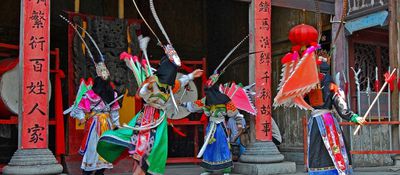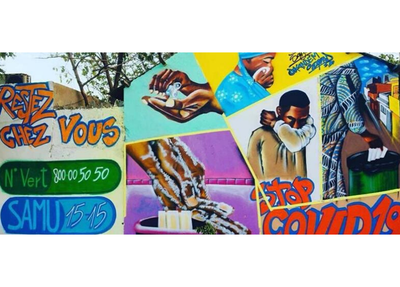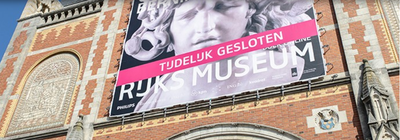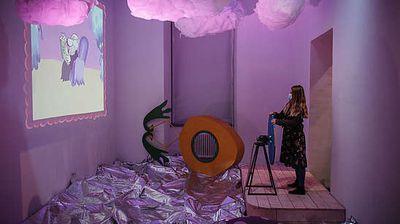posted on
UNESCO Asia-Pacific - cultural resources during COVID-19
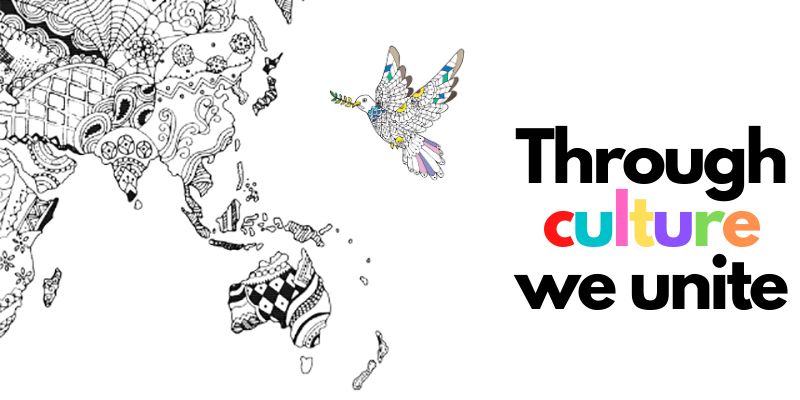
UNESCO Asia-Pacific has developed a dedicated webpage on the impact and responses to the COVID-19 crisis within the culture sector, including arts resources and initiatives in the region.
Among the initiatives - take a look at Art of Re:Creation - Asia-Pacific Edition. Calling amateur artists and art enthusiasts who are at home! UNESCO Bangkok invites submissions for recreating Asian artwork using household members and items, inspired by the Getty and Tussen Kunst & Quarantaine.This initiative aims to promote a number of UNESCO’s core mandates, including the creation and enjoyment of the arts, promotion of museums and intercultural dialogues, especially in the Asia-Pacific region.
The COVID-19 pandemic has touched the lives of most people on our planet earth. The situation is no different for cultural professionals and artistic communities worldwide.
Most cultural institutions – heritage sites, museums, art galleries and libraries – are now closed, leading to a significant loss of income from visitors’ fee and audience tickets. While this income varies between institutions, it accounts for a large proportion of their annual budgets to pay staff and finance conservation and education activities.
The closures with staff working from home potentially could lead to museums and other sites being looted and damaged without immediate attention and proper care, resulting in further burdens to an already fragile system.
In many countries, spring festivities will not be allowed to take place, including South-East Asia’s well-known water festivals, depriving local communities of cultural participation that are usually highlights of the year. Rituals such as birthdays, weddings and funerals, just to name a few, are also being disrupted.
Many communities, especially people living in and around World Heritage sites, are also suffering from the sudden loss of income as tourism falters. With art festivals, book fairs, performances and workshops canceled or put off indefinitely, and art spaces closed, artists and other creative professionals are also struggling.
“The global nature of the COVID-19 crisis is a call for the international community to reinvest in international cooperation and intergovernmental dialogue” said Audrey Azoulay, Director-General of UNESCO. “UNESCO is committed to leading a global discussion on how best to support artists and cultural institutions during the COVID-19 pandemic and beyond, and ensure everyone can stay in touch with the heritage and culture that connects them to their humanity.”
On 9 April, UNESCO launched a global social media campaign, #ShareOurHeritage, to promote access to culture and education around cultural heritage.
We see still the hope that culture brings us. More than ever, people have access to online cultural resources that have not been available in the past. We also see a burst of creativity in the public sphere.
“At a time when billions of people are physically separated from one another, culture has brought us together, keeping us connected and shortening the distance between us. It has provided comfort, inspiration and hope at a time of enormous anxiety and uncertainty.”
– Ernesto Ottone, UNESCO Assistant Director-General for Culture
Governments and major players in the culture and arts sector have provided cash grants and stimulus packages, in some cases targeting the sector exclusively. Old and new expressions of intangible cultural heritage are being reinforced and created, giving them new meanings in an ever-changing situation. Museums are devising new strategies and sharing good practices to address the COVID-19 challenges that they are facing.
It is essential to understand the key role culture plays and how it benefits our society, as well as how we can work together to establish a stronger preparedness system for the sector as a whole. It is also important to further understand how context-based solutions, including indigenous knowledge and practices – those that are socially and culturally appropriate – can help us, in conjunction with scientifically proven measures, deal with this pandemic and other future issues.
UNESCO is working with Member States, civil society, academia, the private sector and communities to safeguard our heritage, foster creativity and promote the role of culture in sustainable development. This partnership is more important than ever at this time.
Please watch this space for indoor activities that will allow you to flex your creativity. We will also post information on how you can engage in cooperation during the COVID-19 pandemic and into the recovery. We look forward to hearing from you on how COVID-19 has impacted your cultural practices and inspired new innovations.
Please get in touch with us via: culture (dot) bgk (at) unesco (dot) org.
Activities:
- Online resources on arts and culture*
- #CultureIsColourful
- Art of Re:Creation – Asia Pacific Edition
- UNESCO’s Little Artists Exhibition
- Explore World Heritage from home with UNESCO
- Monitoring World Heritage site closures
- UNESCO ResiliArt movement
- Share your experiences in safeguarding living heritage during COVID-19 pandemic through this survey
- Culture & COVID-19 Impact & Response Tracker: Issue 1
- Explore initiatives and stories from UNESCO networks
Similar content
posted on
posted on
posted on
posted on
posted on
